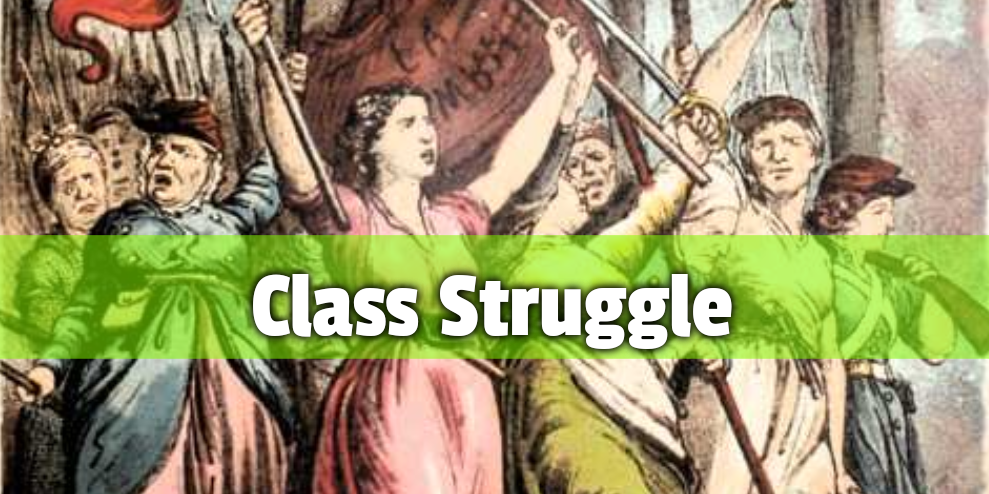Class struggle

Conflict that develops within every mode of production based on exploitation and therefore on class division. It informs all the ideological expressions of an era, shaping the state and driving its transformation or collapse.
Historical function of class struggle
The class struggle materializes in social terms, that is, it "subjectivizes", it endows with a subject, the conflicts that are permanently produced between the productive forces of a society and the social relations within which these forces are developed.
Free men and slaves, patricians and plebeians, lords and serfs, masters and officers, in a word: oppressors and oppressed always clashed, maintained a constant struggle, sometimes veiled and sometimes frank and open; a struggle that always ended with the revolutionary transformation of the whole society or the collapse of the classes in struggle.
Karl Marx and Frederick Engels. Manifesto of the Communist Party, 1848
These struggles do not have a punctual, random character; they are intrinsic to every class system and therefore accompany it from its origin until it is overcome. The oppressed classes will continuously try to shake off the yoke of their oppressors, the exploited ones, to free themselves from exploitation.
The whole history (since the dissolution of the primitive regime of common property of land) has been a history of class struggle, of struggle between exploiting and exploited, ruling and dominated classes, in the different phases of social development.
Frederick Engels. Preface to the German edition of the Communist Manifesto, 1883
But although all the exploited classes have always fought against their situation, the insufficient development of the productive forces of society (the material impossibility of abundance, of communism) reserved the role of revolutionary class to other classes. Only the settlers at the end of the ancient slave era or the bourgeoisie in the feudal regime, could in their historical context, transform the juridical-political structure of society according to their particular interests while producing a progressive alternative for the social whole.
With the coming to power of the bourgeoisie and the development of the capitalist mode of production, however, the exploited class and the revolutionary class coincide for the first time.
http://dictionary.marxismo.school/Class struggleNow this struggle has reached a stage where the exploited and oppressed class (the proletariat) can no longer emancipate itself from the class that exploits and oppresses it (the bourgeoisie), without emancipating, at the same time and forever, society as a whole from exploitation, oppression and class struggle.
Frederick Engels. Preface to the German edition of the Communist Manifesto, 1883